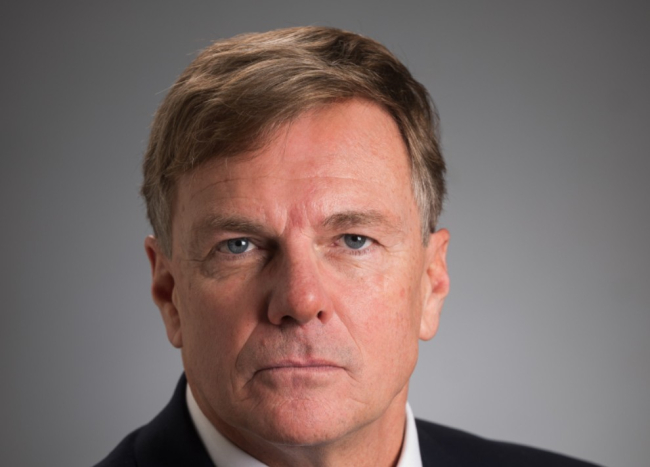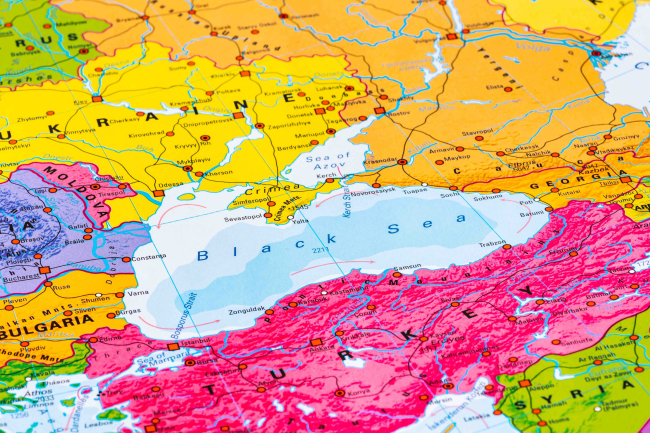Division or Reconciliation: The Changing Political Agenda and Role of Think Tanks in the Next Decade?

Practical information
The 12th regional conference of Council of Councils (CoC) will take place at Ifri from November 17 to 19, 2019. An initiative of the Council on Foreign Relations, the CoC strives to define major foreign policy challenges by identifying threats and opportunities for global governance and multilateral cooperation.

On its 40th anniversary, Ifri is holding a public conference with the directors of the main international think tanks. What dynamics will impact the think tank industry by 2030? What will major foreign policy issues for think tanks be in the next decade?
Division or Reconciliation: The Changing Political Agenda and Role of Think Tanks in the Next Decade
2:00 p.m. to 2:45 p.m. Discussion with
Thierry de Montbrial, Founder and Executive Chairman,
French Institute of International Relations (France)
Richard N. Haass, President, Council on Foreign Relations (United States)
Moderator:
Sophie Pedder, Paris Bureau Chief, The Economist (United Kingdom)
2:45 p.m. to 4:00 p.m. Ten Years Ahead: Insights into the Agendas of International Think Tanks
Speakers:
Rohinton Medhora, President, Centre for International Governance Innovation (Canada)
Patrycja Sasnal, Head of Research, Polish Institute of International Affairs (Poland)
Samir Saran, President, Observer Research Foundation (India)
Carlos Ivan Simonsen Leal, President, Getulio Vargas Foundation (Brazil)
Moderator:
Thomas Gomart, Director, French Institute of International Relations (France)
4:00 p.m. to 5:00 p.m. Cocktail Reception
*****
Find more information about the Council of Councils here.
Member think tanks of CoC :
Argentina: Argentine Council for International Relations (CARI) / Australia: Lowy Institute for International Policy
Belgium: Center for European Policy Studies (CEPS) / Brazil: Getulio Vargas Foundation (FGV)
Canada: Center for International Governance Innovation (CIGI) / China: Institute of International and Strategic Studies (IISS); Shanghai Institutes for International Studies (SIIS)
France: French Institute of International Relations (Ifri)
Germany: German Institute for International and Security Affairs (SWP) / India: Observer Research Foundation (ORF)
Indonesia: Center for Strategic and International Studies (CSIS) / Israel: Institute for National Security Studies (INSS)
Italy: Institute of International Affairs (IAI) / Japan: Genron NPO
Mexico: Mexican Council on Foreign Relations (COMEXI) / Nigeria: Nigerian Institute of International Affairs (NIIA)
Poland: Polish Institute of International Affairs (PISM) / Russia: Council on Foreign and Defense Policy (SVOP); Institute of Contemporary Development (INSOR)
Saudi Arabia: Gulf Research Center (GRC) / Singapore: S. Rajaratnam School of International Studies (RSIS)
South Africa: Institute for Security Studies (ISS); South African Institute of International Affairs (SAIIA)
South Korea: East Asia Institute (EAI) / Turkey: Global Relations Forum (GIF)
United Kingdom: Chatham House (The Royal Institute of International Affairs); International Institute for Strategic Studies (IISS) / United States: Council on Foreign Relations (CFR)
Related Subjects
Other events

Foreign Intelligence Services Amidst the War in Ukraine: Adapting to a New Strategic Reality
European foreign intelligence services have had to continuously adapt to the rapidly evolving security landscape of the past few years. Following challenges such as the COVID-19 pandemic, financial crises, and hybrid threats, the Russian war of aggression against Ukraine has placed conventional military conflict at the centre of European security concerns.

Affirming European Security in Ukraine and the Black Sea Region
European security has been challenged in 2022 with the full-fledged invasion of Ukraine by the Russian Federation.

Doing politics in African cities: actors, causes and forms of urban social mobilization
From Maputo to Nairobi and from Lagos to Dakar: recently, African cities have been the theatre of mobilizations by groups of young protesters.








